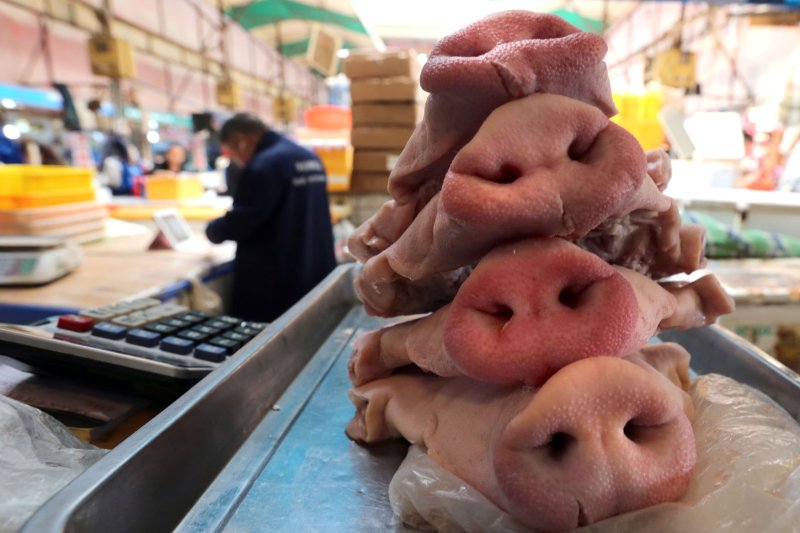Butchers sell all-things pork at a food market in Beijing on April 15, 2016. U.S. agents seized 1 million pound of illegal Chinese pork in New Jersey this week. Photo by Stephen Shaver/UPI |
License Photo
March 16 (UPI) -- U.S. federal agents in New Jersey confiscated 1 million pounds of pork smuggled into Port of Newark from China amid an African swine fever virus scare, authorities announced Friday.
U.S. Customs and Border Protection spokesman Anthony Bucci said that the seizures were the largest of agricultural products in the U.S.
"At this point, it's an ongoing investigation," Bucci said about the case, which was being done in conjunction with the U.S. Department of Agriculture.
While humans cannot get infected with African swine fever, it can kill entire hog herds.
China has reported 109 cases of African swine fever in 25 Chinese provinces. Chinese authorities have responded to the virus by slaughtering some 950,000 pigs across the country.
The smuggled Chinese pork came to New Jersey in 50 shipping containers.
"Agriculture specialists made a critical interception of these prohibited animal products, and stopped them from entering the U.S. before they could potentially cause grave damage," Troy Miller, director of Customs and Border Protection Field Operations in New York/Newark, said.
The American livestock industry could suffer $10 billion in losses if the African swine fever virus infected hogs here, Miller said.
The illegal pork was smuggled in a variety of different packaging, ranging from ramen noodle bowls to Tide detergent, according to deputy chief agricultural specialist Basil Liakakos. It took more than 100 CBP agricultural specialists and canines from the Department of Agriculture to find the pork.
"This was highly orchestrated," Stephen Maloney, the Customs and Border Patrol's acting port director for the Port of New York/Newark, said. "There was a concerted effort to conceal here to bring this product in."















